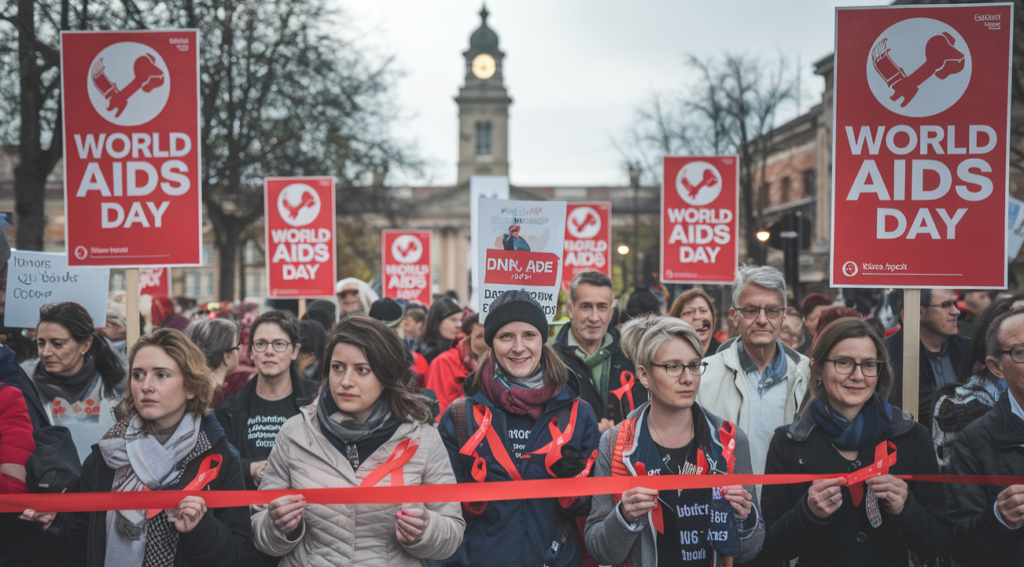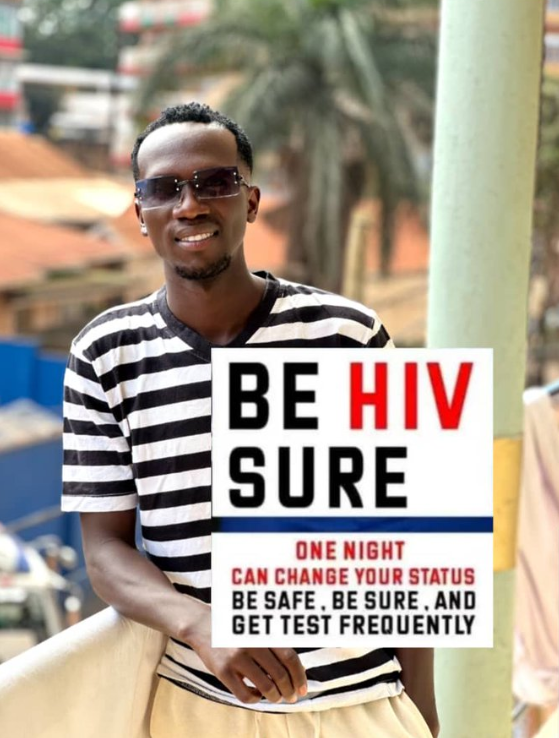The call from World AIDS Day 2024, of making the awareness, education, and support made in the struggle against the epidemic of HIV and AIDS, relevant, first demands that people all over the world enjoy the equity of health care dispelled all myths and urges everyone to be open with it for destroying the stigma and for enabling communities all over.
This year’s theme is equity in health, awareness, and getting rid of discrimination against individuals living with HIV. Enabling communities to be better informed, and having access to treatment, and support will also challenge misconceptions, help reduce stigma, and, therefore, help end the HIV/AIDS epidemic globally.

Introduction: Knowing World AIDS Day
Today, December 1st, we gather with a purpose and passion to observe World AIDS Day 2024. The World Health Organization (WHO) stands shoulder to shoulder with partners and communities around the globe, calling on leaders and citizens to champion the fundamental right to health.
HIV vs. AIDS: A Key Distinction
HIV means Human Immunodeficiency Virus. That virus kills the immune system, and hence a weakening takes place with time. AIDS is the abbreviation of Acquired Immunodeficiency Syndrome. It means AIDS is the last phase of the effect of HIV when the immunity is seriously damaged.HIV and AIDS are like brothers. They are closely associated but are different from one another. HIV is a virus. HIV is a virus that brings about the disease. If proper medicine is not taken in the early stages, then HIV can turn into AIDS.
How HIV Leads to AIDS
1. HIV Infection Stages:
- Acute Stage: The acute stage occurs soon after infection. Symptoms are often like the flu or they are absent.
- Chronic Stage: The chronic stage occurs with the virus is active, yet it only reproduces slowly. Symptoms may be absent for years.
- AIDS (Final Stage): Left untreated, HIV will break down the immune system to the AIDS point. At this stage, the body cannot fight infections or diseases.
2. Factors Affecting Progression:
- HIV progresses faster than AIDS when left untreated.
- Other factors such as health in general, age, and access to healthcare also contribute to the progression.
3. Role of ART:
- It is the treatment that controls HIV.
- It decreases the virus in the body to deficient levels.
- Early initiation of ART and sustenance would mean a long, healthy life can be possible and AIDS-free for an individual who suffers from HIV.
Common Myths Surrounding HIV and AIDS
1. Myth: HIV affects only particular categories of people.
Fact: HIV doesn’t discriminate who it infects. It has no regard to who you are, how old you are, or whatever your background is there. It cares about behavior- whether you have unprotected sex or share needles. Not identity.
2. Myth: You will get AIDS if you are HIV-positive.
Fact: HIV is a controllable illness if treatment is initiated early using ART, and individuals infected with HIV are living long, healthy lives and never develop AIDS.
3. Myth: HIV is curable.
Fact: There is no cure for HIV, but the drug ART helps the patient maintain the virus within manageable levels, and so the person infected with HIV can live normally.
4. Myths: An HIV-infected person cannot conceive healthy children.
Fact: If HIV-positive people are appropriately medically managed, particularly through ART, they can have healthy children without transmitting the infection.
Today, on World AIDS Day 2024, we honor lives lost, celebrate progress, and renew our commitment to ending HIV and AIDS.Race Against Time
— Kibet Benard (@KibetBenard_) December 1, 2024
#10YearsOn
EndAids2030
#WorldAIDSDay2024 #EndAIDSby2030
Behind every statistic lies a story of struggle, resilience, and hope. pic.twitter.com/6P4R3bGhHI
Living with HIV: A Controllable Disease
1. Advances in Medical Care and Treatment:
- This new ART has changed the status of HIV from a deadly disease to a condition that can be managed.
- It minimizes the presence of viruses in the body, hence living a long life in healthy conditions.
- Good care, healthy lifestyle choices, and treatment adherence make a difference.
2. Stories of Resilience and Survival:
- Most people infected with HIV are healthy, productive, working people who support families and contribute to society.
- Personal stories underscore the importance of hope, community support, and determination.
- Their experiences inspire others and help fight stigma, proving that an HIV diagnosis is not the end of a meaningful life. With proper care and support, living with HIV is not just possible—it’s a journey of strength and growth.
The Global Struggle Against Stigma
1. Effects of Misinformation on Individuals and Communities:
- Misinformation about HIV and AIDS causes fear, discrimination, and isolation among individuals. –
- HIV-infected people are rejected, deprived of care, or even bullied, which exacerbates their mental and emotional conditions.
- Stigma prevents people from seeking testing or treatment. This helps the virus to spread.
2. The Significance of Education and Open Communication:
- Education is necessary to break down myths and eliminate fear.
- Open communication can encourage people infected with HIV to feel a more open environment.
- Open dialogue enables one to know how HIV is spread and how those living with HIV can lead healthy lives.
- In the process of fighting stigma, people can be taught to empathize and respect each other in society.
Ending stigma requires collective action through accurate information, compassion, and ongoing conversations.
Role of Testing and Early Intervention:
1. Early HIV Testing Benefits:
They can know their status while still in the early stage, which is the first step forward to controlling one’s health situation. Once individuals are diagnosed HIV positive, they can have early treatment initiation, for instance, antiretroviral therapy or ART, where they can be restored more to their normal lives, hence improving their quality of life.
– Early testing also prevents the accidental spread of the virus to other people.
2. How Early Detection Prevents the Progression into AIDS:
- – Early detection leads to early treatment that ensures the control of the virus and prevents damage to the immune system.
- – People with HIV can live a long healthy life without developing AIDS because of the existence of ART.
- Detection of possible problems before they develop into serious ones that bring about worse health results requires regular monitoring and care.
- Early testing and early start of treatment are also fundamental components for the effective management of HIV as they prevent the disease from turning into AIDS.
World AIDS Day 2024: Equity and Empowerment
1. Theme for This Year and What it Means:
- The theme of World AIDS Day 2024 is going to be Equity and Empowerment.
- The theme speaks to the need for equal access of all people to prevention, treatment, and care for all.
- The theme highlights the recognition and empowerment of the subordinated communities, giving them the skills and resources to prevent and offer care against HIV.
2. Closing Healthcare Access and Resource Gap:
- Many communities have been exposed to good healthcare facilities and HIV services mainly in poor and rural settings.
- Closing these gaps involves increased access to HIV testing, treatment, education, and care.
- It will also involve reducing discrimination and assuring that healthcare systems remain inclusive and accessible to everybody.
- Such a closure of gaps will ensure the health of everybody regardless of their situation and the proper management of HIV.
World AIDS Day 2024 is a reminder that achieving health equity globally is essential to the end of the HIV epidemic and empowering people worldwide.

How You Can Make a Difference
1. Promoting Awareness and Education:
- Sharing facts about HIV and AIDS would dispel many myths and incorrect information.
- Educate other people on how HIV is transmitted, prevented, and treated in ways that minimize fear and stigma.
- Promote change through growing awareness and use of social media, community activities, or schools.
2. Supporting Organizations and Initiatives:
- Give time, money, or resources to organizations to work for HIV prevention, education, and support.
- Volunteer to engage with local or global programs that provide services to people living with HIV.
- Support the effort toward finding a better treatment or a cure for HIV.
3. HIV and AIDS Open Discussion:
- Talk to your community, your school, or your workplace about discussing the need for HIV testing and the importance of early treatment.
- Open talking will help normalize the topic, reduce stigma, and encourage others to get tested and seek help. Support individuals living with HIV to show them respect, dignity, and care.
This will include spreading awareness, supporting organizations, and speaking out for open dialogue as a way of fulfilling your important role in developing a better world of information, support, and care for people affected by HIV and AIDS.
Conclusion: Towards a Stigma-Free World
In short, World AIDS Day 2024 puts across the idea of creating awareness, education, and support for HIV and AIDS. Some of the important key points are the difference between HIV and AIDS, early testing and intervention, eradication of false information, and medical advancement that has made HIV a manageable disease. We also appreciate the role of equity and empowerment, making sure that everyone has access to care regardless of their background.
It’s time for all of us to take action, whether it is spreading awareness, supporting organizations doing HIV/AIDS initiatives, or speaking out about it to break stigmas. We can do that as individuals by educating ourselves and others, promoting understanding, and standing with people affected by HIV.
Let’s move toward a world where stigma no longer holds people back from seeking help and living healthy lives.
Also Read: IIM Cat Response Sheet 2024 Officiallly Available Today!